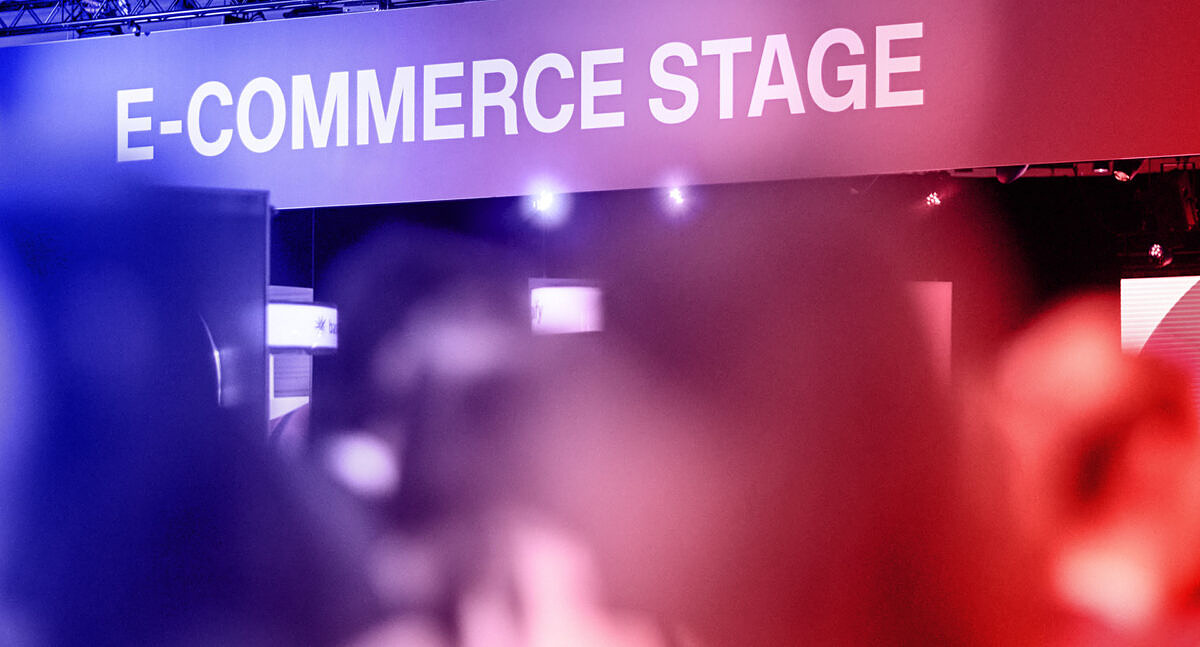The e-commerce trends set to define 2025
Which e-commerce trends will shape the coming year? Industry experts came together to discuss the future of online retail at DMEXCO 2024.

E-commerce shake-up: new strategies and innovations for the future
What major disruptions should the e-commerce industry prepare for? And what role are trends such as retail media and social commerce playing for retailers and providers? Like many other sectors, the e-commerce industry is feeling the effects of the current economic situation. Low-cost players from Asia with dynamic pricing policies and a strong media presence are catering to the tastes of price-conscious customers. With competition fierce, businesses need new strategies to survive on the market. At the same time, technological innovations promise numerous opportunities for taking online retail to the next level.
Thought leaders in the digital industry came together on the E-Commerce Stage at DMEXCO 2024 to set the e-commerce trends. Day 1, for example, saw Dr. Philipp Andrée (Chief Commercial Officer of the DOUGLAS Group), Linda Hoffmann (Head of Partnership DACH at Shopify), Livia Mitschke-Collande (Industry Leader Retail at Google Germany GmbH), and Artjem Weissbeck (founder of Kapten & Son and charles) discuss the trends in e-commerce for 2025. Here are the top five:
#1: GenAI as a game changer in personalized customer communication
Whether shopping for beauty products, sports clothing, or tools, customers are faced with an almost overwhelming array of options in most online shops. For years, offering an extensive range of products was a must for internet stores looking to meet customer requirements to the fullest possible extent. Information on consumer behavior now points to a different trend.
“The first trend is the ‘exactly what I want’ trend.”
Online shoppers are searching in a more specific way for products that are precisely tailored to their needs. Product searches using images are also on the up. Shops therefore have to engage with consumers in a way that caters to this behavior – for example, through GenAI-powered shopping assistants that deliver better search results and provide personalized recommendations.
#2 Increasing importance of social commerce in conjunction with conversational commerce
Social media channels – as key touchpoints for interaction, product discovery, and shopping – are now a permanent fixture of successful marketing strategies for many brands, with a view to meeting consumers where they are. Aided by AI, social commerce is becoming a driving force for creating personalized shopping experiences and delivering tailored product recommendations to users in real time. Artjem Weissbeck, founder of Kapten & Son and charles, says it is also important to focus here on conversational commerce to facilitate individualized attention. Rather than using only intelligent chatbots as a means of conversation, all aspects of marketing must be geared towards the conversational commerce approach.
„Now service [via Chatbots] really works efficiently, marketing can also have a conversational approach and that’s a new big revenue driver for brand.“
He feels that messenger services such as WhatsApp – in contrast to traditional email – allow for more interactive and effective communication with customers.
Did you miss an e-commerce session at DMEXCO 2024 that was important to you? Or would you like to rewatch particular highlights? We’ve got you covered! As a member of the DMEXCO community, all conference talks and masterclasses are available to you for free in our VOD library.
#3: Emotional connection as the key to success in competition with low-cost providers
Online retail is increasingly facing competition from providers like Temu that use aggressive marketing strategies and successfully attract customers with low prices. However, brands have to do more than simply compete on price to continue thriving in this environment. Forming a sustained emotional connection with customers is becoming a crucial differentiating factor.
„Retailers need to reinvent. They need to individualize and find different habits […] to attract audiences as GenZ.“
Brands can build loyalty, even with younger target groups, and ensure a long-term presence in the market through tailored customer experiences, a targeted approach, and excellent service.
#4: Seizing market opportunities: Innovation as a competitive factor
GenAI is a crucial factor for successful innovation and must be embraced by companies if they are to remain competitive in 2025. The use of AI can massively accelerate the automation of customer service, content creation, product search, and other processes. This, in turn, allows organizations to work more efficiently and adaptably.
„When we fokus on the next 12 months, it’s just getting your hands around GenAI and to play around with it.“
Brands that are quick to adopt these technologies and adapt to the rapid pace of development will gain a clear competitive advantage. In addition to optimizing internal processes, they will also be better placed to meet the increasing expectations of discerning customers.
#5 Focus on “retail everywhere”
„The big trend and shift is basically the retail everywhere era where the consumer or shopper is expecting to be in a shop whenever, whereever they are.“
This shift is challenging companies to create seamless shopping experiences across all channels – online, on social media, and in brick-and-mortar retail. Brands have to stay flexible and optimize their touchpoints to meet the expectations of today’s consumers and remain competitive.
Don’t miss these other interesting sessions on the E-Commerce Stage:
The Mar-tech mavericks: How women are reshaping the mar-tech landscape panel introduces accomplished female leaders in the advertising technology industry who share their experiences and perspectives on innovation and challenges. Emphasizing the pivotal role of gender diversity, the aim of the discussion is to inspire and encourage networking with pioneers who are shaping the future of the mar-tech industry.
In his keynote entitled Performance marketing in the age of AI: Effective strategies for greater profitability in e-commerce, Mike Ryan (Head of Ecommerce Insights at Smarter Ecommerce GmbH) sheds light on the role of AI in performance marketing and its impact on e-commerce profitability. He addresses the challenges that arise due to the “black box” nature of the AI used by advertising platforms. He also demonstrates targeted ways of using these platforms to achieve business goals. Learn to recognize the limitations of AI, steer AI optimally, and develop profitable strategies based on case studies.
In the Corporate influencers: The new rock stars in B2B panel, Heike Lisson (Head of Corporate Digital Marketing & Communications at MANN+HUMMEL), Stefanie Von Gostomski (Senior Expert Financial Controlling & Community Manager Telekom Ambassador at Deutsche Telekom AG), and Michaela Wüst (Communication Coach at DATEV eG) show how B2B influencers are changing the way companies are perceived. The experts discuss the use of influencers in areas such as employer branding, sales, and events as well as having C-suite managers act as influencers. They also shed light on the importance of authenticity and look at effective metrics for measuring the ROI of B2B influencer marketing.
E-commerce trends for 2025: Crucial to future success
The e-commerce industry stands at an important crossroads. Trends such as GenAI, social commerce, and the “retail everywhere” strategy are tearing up the rule book. Brands must not only recognize these developments but also actively shape them in order to remain competitive. DMEXCO 2024 has shown that personalized experiences, emotional connections with customers, and innovative technologies will be the key themes for 2025. Organizations that integrate these e-commerce trends into their marketing strategies as early as possible will lead the way in the digital retail of the future.






